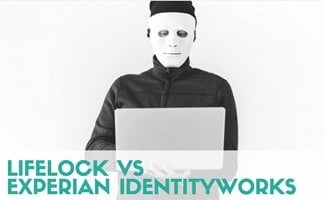Child Identity Theft: What Is It, How Does It Occur, Protection And Prevention
When you purchase through links on our site, we may earn a commission. Here’s how it works.
 The prospect of having your identity stolen is scary enough, let alone the thought that it may happen to your own child. Unfortunately, we live in an age where criminals will stop at nothing.
The prospect of having your identity stolen is scary enough, let alone the thought that it may happen to your own child. Unfortunately, we live in an age where criminals will stop at nothing.
Too many parents don’t realize that their children are vulnerable to ID theft. Our experts have put together this ID theft prevention guide specifically to thwart threats to your children.
Article Overview
- What Is Child Identity Theft?
- How Often Does It Happen?
- Check Your Child’s Identity
- How Can I Protect My Child?
- Child Identity Theft On The Rise (Video)
- Protect Your Child’s Identity And Also Your Own
What Is Child Identity Theft?
Child identity theft occurs when someone uses a child’s personal information to commit fraud. Their personal information, including their name and social security number, is stolen by someone who uses it to open lines of credit, take out loans, and apply for jobs or government benefits.
One of the biggest concerns with child identity theft is that it can go undetected until the child needs to use their credit to apply for a credit card or loan and they get denied. This fraud can go on for years without anyone noticing.
How Often Do Children Have Their Identity Stolen?
The facts about child identity theft are alarming. According to Experian, one of three federal credit bureaus, people file reports on 25,000 to 30,000 fraud cases each year, and 17% target children. An estimated 25% of children will be victims of child identity theft or fraud by the time they turn 18.
The 2021 Javelin Strategy and Research child identity fraud study found more than 1.25 million reports of child identity theft in the U.S. in the past year, costing the average family more than $1,100. In more than half the cases, the victims were under 9 years old, and over 70% of the victims know their perpetrators.
As scary as those statistics are, they only highlight cases that people report. The actual numbers are likely much higher.
Can You Check On Your Child’s Identity?
You can check to see if your child’s identity has been compromised by looking to see if there is a credit report in their name. As long as there have been no attempts to use the child credit, there shouldn’t be a report. If your child is 14 or older, you can check online using the federally authorized website AnnualCreditReport.com. If you have a child 13 or younger, there are more steps.
Checking Credit For A Child Under 13
The Children’s Online Privacy Protection Act (COPPA) prevents the collection of a child’s personal information online. Because of this, you cannot access a child’s credit report online, and you’ll need to contact each of the three federal credit bureaus.
Have the following documentation and information ready, so you have all the things the credit bureaus might require for your request:
- Your driver’s license or another government-issued identification card
- Proof of address, like a bill or bank statement with your name and address
- Copy of your child’s birth certificate
- Copy of your child’s Social Security card
- Your child’s full name
- Your child’s date of birth
- Previous addresses for the past two years
Experian
Experian offers a Child ID Scan service. You’ll have to sign up for an account and then they will scan their database for your child’s social security number, and inform you of any information on file. You can also submit a written request by mail to:
Experian
P.O. Box 2002
Allen, TX 75013
Equifax
To check with Equifax, you’ll need to submit a letter in writing, with supporting documentation and information to:
Equifax Information Services LLC
P.O. Box 740241
Atlanta, GA 30374-0241
TransUnion
For TransUnion, you’ll need to send a detailed email and supporting documentation and information to childidtheft@transunion.com or use their secure form online.
5 Ways To Protect Your Child From ID Theft
Here are some tips to help you protect your child from identity theft.
1. Get Informed

2. Monitor Your Child’s Credit
Even though your child is not using their credit, you still need to check it regularly. That’s the only way you can verify that it is safe.
Using a credit monitoring service can ensure you’ll stay aware of changes to everyone’s credit. Some monitoring services, like IdentityForce and Identity Guard, offer you the option of a family plan or adding your dependents to your plan for an additional fee. The services of companies like this can include various ways to check credit and alert you to any changes.
3. Freeze Your Child’s Credit
You can put a freeze on your child’s credit to make it harder for someone else to use it. A credit freeze will prevent the issuing of any new credit. You’ll need to call the three federal credit bureaus and ask them to place this freeze, and you’ll want to remove it at least three days before your child needs to use their credit in the future.
4. Protect Your Child’s Personal Information
You need to think twice about giving out your child’s personal information. Specifically, you need to protect your child’s social security number. Always ask what information is absolutely necessary and why before you give information to anyone. You also want to ask what precautions they’ll take to protect that information. You have the right to know.
5. Look For Warning Signs
These are some red flags that can alert you to problems with your child’s identity.
- Calls from collections agencies regarding accounts in your child’s name
- You have missing documents that contain your child’s personal information
- Traffic violations in your child’s name
- Being unable to claim your child on your tax return because they’re on another return
- Getting pre-approved credit offers for your child
Why Is Child ID Theft On The Rise?
This two-minute video by KPRC in Houston, Texas, discusses why child identity theft is on the rise and what you can do about it.
Protect Not Only Your Child’s Identity, But Also Your Own
It’s essential to protect your child from identity theft, so they have a fair chance at a healthy financial future. Be sure to stay aware of the latest news regarding identity theft to protect your family and yourself. We have in-depth articles on identity theft statistics and a comprehensive guide on protecting your identity. Both can help you see the big picture and learn more about steps you can take today.



